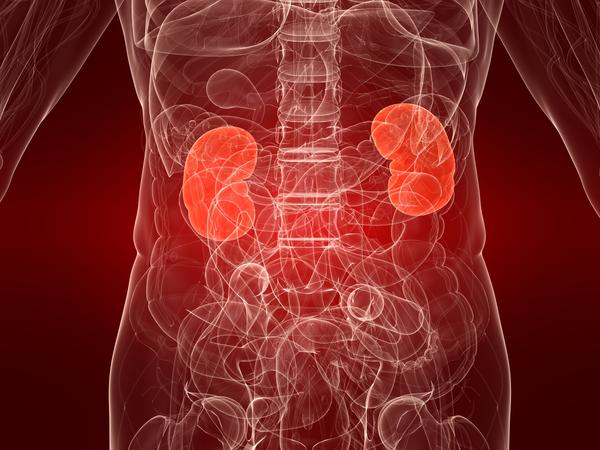Kidney disease happens when the kidneys become damaged, inhibiting their ability to filter waste from the blood. This isn't a sudden event; rather, kidney function is lost slowly over time. Kidney disease is divided into five stages, according to the glomerular filtration rate (GFR). GFR measures kidney function, with respect to your age, gender, ethnic origin, and levels of serum creatinine. Stage 3 kidney disease can be further divided into stage 3A, with 45-59 mL/min GFR, and stage 3B, 30-44 mL/min GFR, according to research by DaVita, a dialysis services provider.

What Are the Symptoms of Stage 3 Kidney disease?
Kidney disease is a progressive ailment, with kidney function gradually declining. Patients with this condition may notice the following symptoms, which seem to get worse over time.
1. Fatigue
When kidneys lose function, waste products accumulate in the blood due to decreased filtration. Kidneys secrete several hormones for body functions. For example, erythropoietin can stimulate red blood cell production in the bone marrow. If you have stage 3 kidney disease, erythropoietin is produced less, so red blood cells may be insufficient, resulting in anemia and fatigue.
2. Fluid Retention
Excess bodily fluids are removed through the kidneys. Therefore, kidney disease causes fluid accumulation (edema), particularly in the hands, lower legs, and around the eyes. Untreated edema can cause walking problems, greater infection risk, reduced blood circulation, and painful swelling.
3. High Blood Pressure
The kidneys help regulate blood pressure. As kidney function declines, fluid build-up increases blood volume, resulting in blood vessel damage. Kidney blood vessel injury can cause additional kidney destruction, so the patient is caught in a vicious cycle.
4. Urination Changes
Urine can become foamy if there is a lack of urinary proteins because of kidney damage. Patients may also notice changes in urine color, like be red, brown, or dark orange, if they are any blood in the urine. There may also be either decreased or increased urination.
5. Kidney Pains
There are certain types of kidney conditions that cause pain in the kidney area. These include infections and polycystic kidney disease.
6. Sleep Problems
Issues such as muscle cramps, itching, and restless legs can result in sleep problems in some patients with stage 3 kidney disease.
How Does Stage 3 Kidney Disease Influence Your Life?
At stage 3, the kidneys have been moderately damaged; however, you can usually continue normal body functions, so it shouldn't have a massive impact on your life.
Nevertheless, it does need to be taken seriously, as if you do not receive effective and timely treatment, the kidney condition will worsen, and this can severely shorten your life. Patients with stage 3 kidney disease have suffered a moderate GFR reduction to 30-59 ml/min/m2, and a loss of around half the kidney function.
How to Live With Stage 3 Kidney Disease
At the moment, no cures for kidney disease have been found. However, you may be able to slow down the damage and even halt disease progression. With the correct treatment regime and by making lifestyle changes, you can keep your kidneys and yourself healthier for longer. At stage 3 kidney disease, you can make the following changes:
1. Adjust the Diet
For patients with stage 3 chronic kidney disease, a healthy and advised diet could be as follows:
- High-quality protein and potassium sources, especially if the levels of these nutrients in the blood are above normal.
- If blood potassium and phosphorus are within the normal range, getting some fruit, vegetables, and grains.
- Cut back on phosphorus-containing foods. This helps to protect remaining kidney function, defend against bone disease, and maintain parathyroid hormone levels within the normal range.
- Reduced calcium intake which can burden your kidney.
- For diabetic patients, decrease carbohydrate consumption.
- Lower the amount of saturated fat in the diet in order to reduce cholesterol levels.
- For patients with fluid retention or high blood pressure, eliminate pre-packaged and processed foods in order to lower sodium levels.
- Cut back on calcium-containing food if you are hypercalcemic.
- Don't take any over-the-counter dietary supplement unless advised to by your nephrologist. He or she may suggest water-soluble vitamins such as 100 mg daily vitamin C and B complex.
Your diet will need regular monitoring as your kidney disease changes. Therefore, you may wish to work with a registered renal dietitian.
2. Use Medications
Patients with stage 3 kidney disease often also have other health conditions, such as high blood pressure and diabetes. Controlling their glucose levels and blood pressure can help maintain kidney function. To achieve both these aims, doctors can prescribe blood pressure medication, for example, angiotensin-converting enzyme (ACE) inhibitors and angiotensin receptor blockers (ARBs) to slow kidney damage, even in patients who aren't hypertensive. Ask your physician about these drugs, and the best way to take them.
3. Do Exercise and Stop Smoking
Exercise is one of the best things you can do for your health, even if you have stage 3 kidney disease. However, you need to select the right exercise type and intensity. As long as you perform moderate exercise at least five times a week, you will see the benefits. For example, you could walk 1.75 miles in 35 minutes, practice water aerobics for half an hour, climb stairs for 15 minutes, or swim for 25 minutes.
You should also stop smoking, as this is not good for your kidneys. Your doctor can advise you on how to do this, as well as helping you design a good exercise plan.
